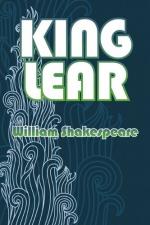|
This section contains 6,535 words (approx. 22 pages at 300 words per page) |

|
Catherine S. Cox, University of Pittsburgh at Johnstown
Throughout King Lear, conventional interpretations of gender identity are challenged by ambiguously constructed female characters. The three women inhabiting Lear's world—his daughters Cordelia, Goneril, and Regan—supply the text with culturally and theoretically profound treatments of gender issues. The daughter figures, especially Cordelia, exhibit characteristics germane to Renaissance appropriations of early Christian and medieval (anti) feminist commonplaces, with the distinction between valorization and denigration rendered ambiguous by the subtle incorporation of competing motifs. I shall explicate the polysemous gender constructions of the daughters in King Lear in connection with literary and theological traditions in order to demonstrate that the play's ultimate sense of restoration and order is both contingent upon and betrayed by its rejection of "unnatural" gender.
Goneril and Regan, the two "unnatural hags" (2.4.278) as Lear will decry them, are negatively depicted as familiar virago types, but Cordelia...
|
This section contains 6,535 words (approx. 22 pages at 300 words per page) |

|


